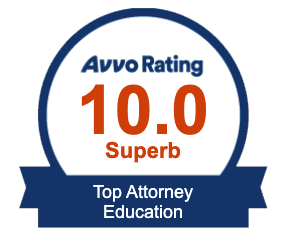By now, most if not all school systems have completed the school year. Students are enjoying the beginning of the summer vacation. Teachers and administrators are finishing up loose ends and engaging in post- school year planning. There will be a short break for some students with disabilities who will be entering extended school year programming in June and July. And some parents and families will have a break from school before the beginning of the 2016-2017 school year in early August. Time goes by quickly.
In the past few posts, I discussed transition planning and services for children with disabilities. I stressed how important transition planning and services are for your child who is or will soon be graduating from high school. So I ask if your child graduated high school this year, was the transition planning successful. Is your child now entering into post-secondary activities whether it is entering college, entering a vocational program, living in the community in an independent or structured environment, engaging with friends and co-workers, and beginning a new phase of his or her life? I would like to hear about your experiences with the school system and learn whether your child was provided with appropriate transition services so that they smoothly begin this new phase of their life. And for those parents that expect their child will graduate at the end of the 2016-2017 or 2017-2018 school year, are you satisfied with the way the school system is handling transition planning? Do you feel confident the school system is complying with the legal requirements for transition planning and services and that it is likely your child will successfully graduate from high school and smoothly enter post-secondary activities and programs? I would also like to hear from you as well. It is essential parents learn from others experiences to gain knowledge and information about what works for them and also to know and avoid, if possible, what does not work for them. Of course, one size does not fit all. Each child is different and the school system must develop an IEP and transition plan that addresses his or her individualized educational needs. Be sure to read the requirements for transition planning and services carefully to monitor whether your school system is complying with the law.
For some parents whose child has graduated or will soon graduate from high school, hopefully your child has been linked to outside agencies such as the Department of Vocational Rehabilitation, the Department of Community Health, Department of Behavioral Health and Developmental Disabilities and other public and private agencies, organizations and individuals who are responsible to pay for or provide services to him or her. If not, you will find that securing appropriate services and programs from state and local governmental agencies that may be responsible for your child after graduation from high school to be quite challenging and at times confusing. The difference, in part, between the legal obligations of local educational agencies and other governmental agencies to provide services and activities for your child after graduation is one of entitlement as opposed to accommodation. Special education must be provided to eligible children under the law. On the other hand, there is no right to employment for a child with a disability. The Department of Vocational Rehabilitation, for example, must determine eligibility for adults and youth with disabilities for its programs and services, but there is no guarantee that even if your child is properly trained to work at a job by this Department that an employer must hire him. There is also no right for government to provide housing for an adult or youth with disabilities. Public housing is available under some circumstances to adults and youth with disabilities but there is no entitlement for such housing. Accommodations must be made for individuals with disabilities in housing, however. In sum, the world after graduation is not the same as public school.
The new transitions your child will face after graduation can be just if not more challenging than those faced in public school. If you have questions about these new transition, you should contact a special education attorney or an attorney that is familiar with public and governmental agencies that serve adults and youth with disabilities.

